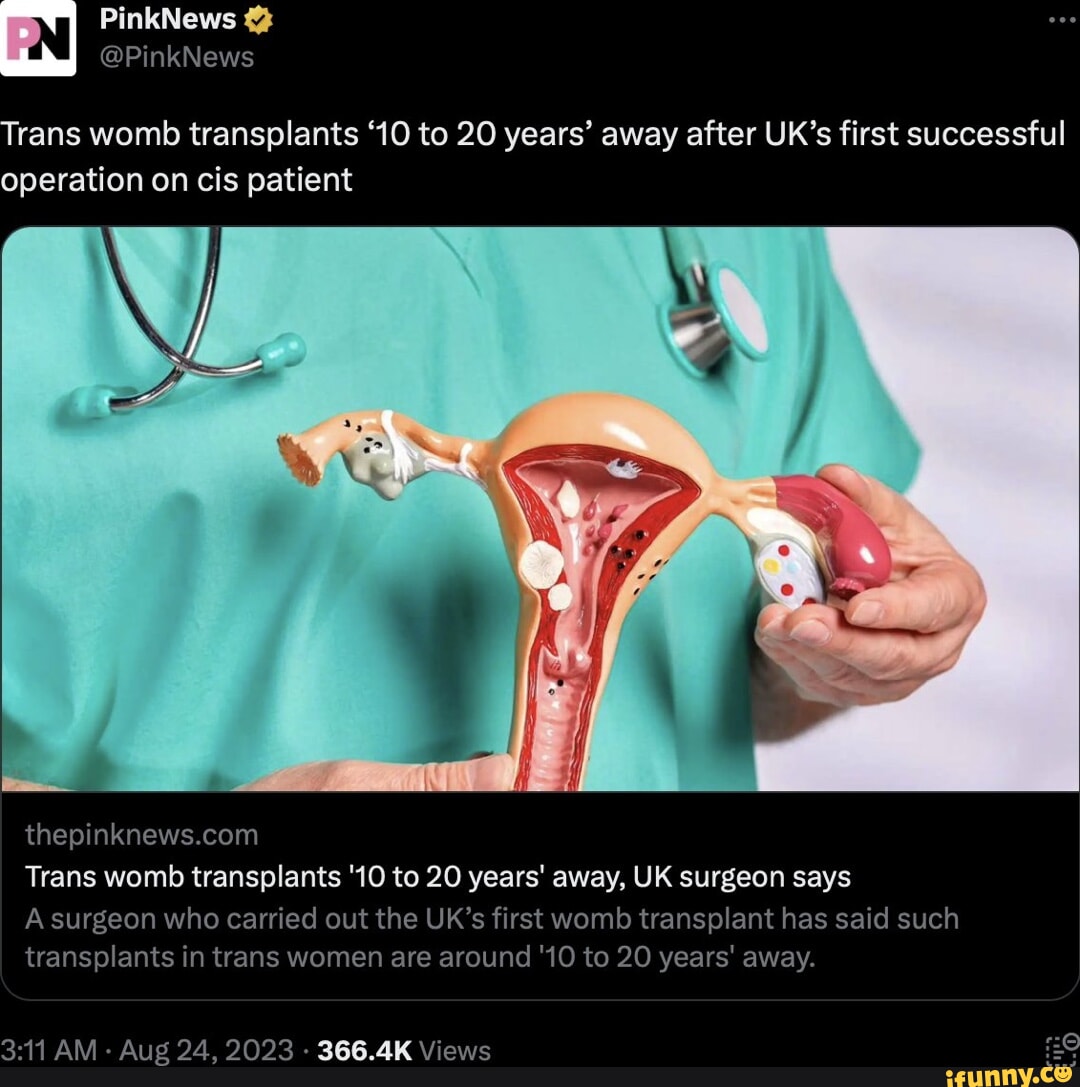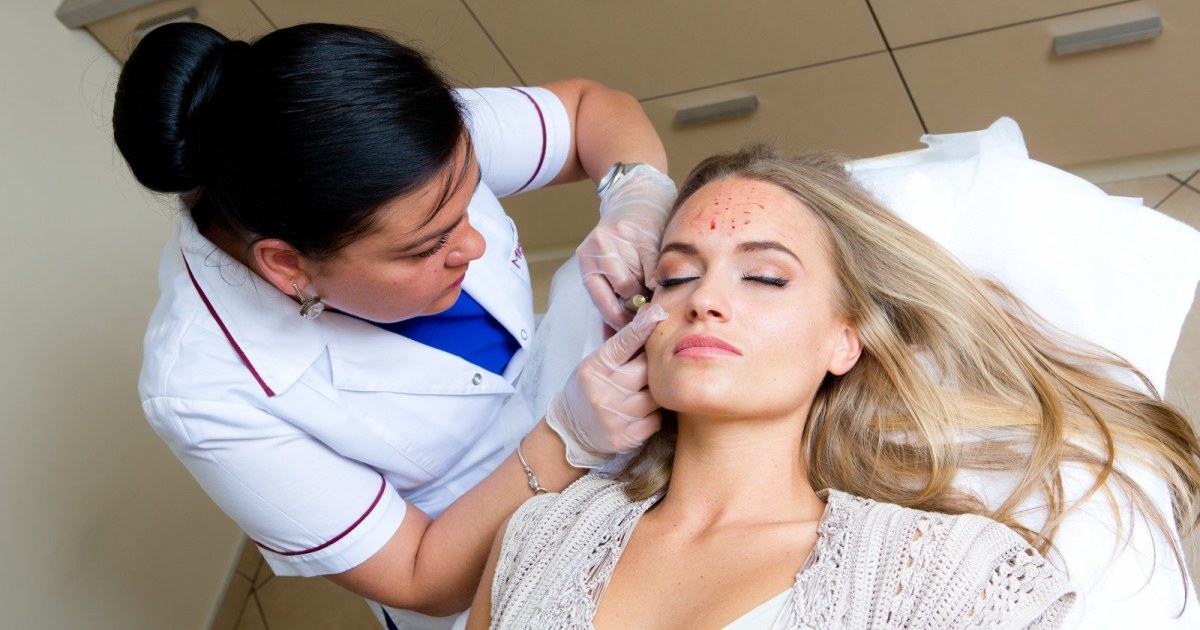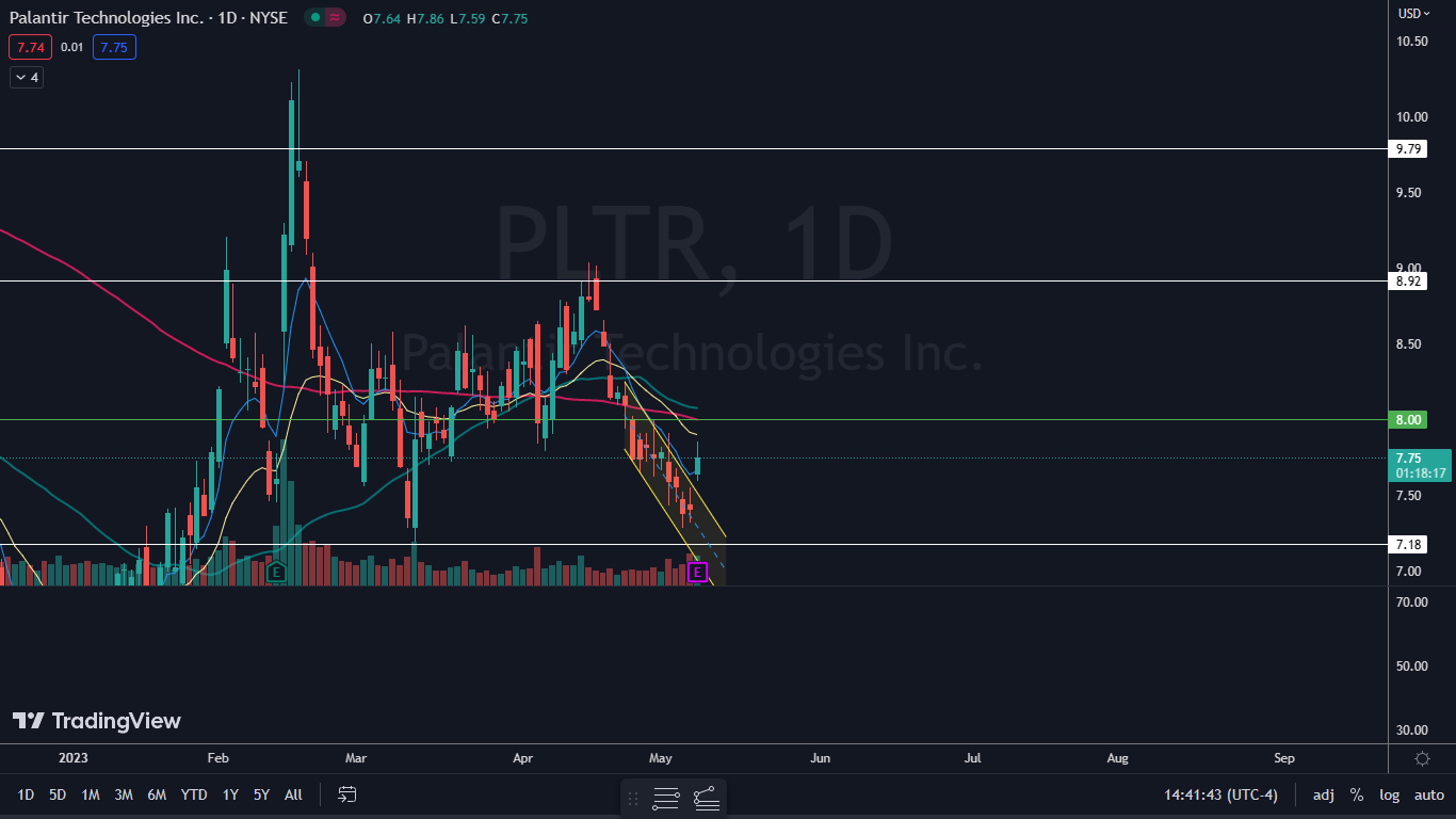Community Activist Proposes Live Womb Transplants For Transgender Mothers

Table of Contents
The Activist's Proposal and its Rationale
The activist proposes exploring the feasibility of live womb transplantation as a pathway to biological motherhood for transgender women. This would involve a complex surgical procedure transplanting a uterus from a living donor into a transgender recipient, followed by in-vitro fertilization (IVF) and pregnancy. The reasoning behind this bold proposal centers on several key points:
- Addressing Unmet Needs: Many transgender women deeply desire to experience biological pregnancy and childbirth as a fundamental aspect of their gender affirmation and motherhood. Current reproductive options often fall short of fulfilling this desire.
- Expanding Reproductive Options: The proposal seeks to expand the limited reproductive choices available to the transgender community, moving beyond surrogacy and adoption.
- Promoting Gender Affirmation: For many transgender women, carrying and birthing a child is an integral part of their gender identity and journey. Live womb transplants could be viewed as a significant step towards full gender affirmation.
- Lack of Accessible Alternatives: Current methods like IVF and surrogacy are often prohibitively expensive, inaccessible, and fraught with legal and emotional complexities, leaving many transgender women with limited options.
Medical and Ethical Challenges of Live Womb Transplants
The proposal for live womb transplants for transgender mothers presents formidable medical and ethical hurdles.
Medical Hurdles:
- Surgical Complexity and Risks: Uterus transplantation is a highly complex and risky procedure, requiring extensive surgical expertise and carrying significant risks for both the donor and recipient.
- Immunological Rejection: The recipient's body may reject the transplanted uterus, requiring lifelong immunosuppression medication, which carries its own set of health risks and side effects.
- Long-Term Health Consequences: The long-term effects of immunosuppression and the procedure itself on both donor and recipient remain largely unknown and require extensive research.
- Ethical Considerations Surrounding Live Organ Donation: The ethical implications of live organ donation must be carefully considered, ensuring donor safety and fully informed consent.
Ethical Dilemmas:
- Informed Consent: Ensuring fully informed and voluntary consent from both the donor and recipient is paramount, given the risks and complexities involved. Particular attention needs to be paid to addressing any potential vulnerabilities of donors.
- Balancing Rights and Well-being: The ethical framework must carefully balance the rights of the transgender individual seeking parenthood with the well-being and safety of the live donor.
- Potential for Exploitation or Coercion: Robust safeguards must be implemented to prevent exploitation or coercion in the process of organ donation, ensuring that decisions are truly voluntary and free from undue influence.
Alternative Reproductive Options for Transgender Individuals
While live womb transplants present a radical new approach, several existing alternative reproductive options are available for transgender individuals:
- In Vitro Fertilization (IVF) and Surrogacy: IVF with a gestational surrogate allows transgender women to use their own eggs or donor eggs to conceive and carry a child to term through a surrogate.
- Adoption and Fostering: Adoption and fostering provide loving homes for children in need, and many transgender individuals are successful and loving parents through these pathways.
- Gamete Donation: Transgender men may utilize gamete donation to conceive a child with a partner or surrogate.
However, these alternatives face limitations:
- Financial Barriers: IVF, surrogacy, and even adoption can be extremely expensive, creating significant barriers to access for many transgender individuals.
- Legal Complexities: Legal frameworks surrounding surrogacy and reproductive technologies vary widely, creating uncertainty and difficulties for transgender individuals seeking to utilize these options.
- Societal Stigma: Transgender individuals may face societal stigma and discrimination when seeking reproductive healthcare, adoption, or fostering. The emotional toll of navigating these biases adds to the burden.
Public Opinion and Societal Response
Public opinion regarding the proposal for live womb transplants is highly divided. Supporters emphasize the importance of reproductive autonomy and gender affirmation for transgender individuals, highlighting the unmet needs of this community. Opponents raise concerns about the medical risks, ethical dilemmas, and the potential for exploitation. The media and social media have played a significant role in shaping public discourse, amplifying both support and opposition. The debate is intricately linked to broader discussions about LGBTQ+ rights, reproductive justice, and the accessibility of healthcare for marginalized communities.
Conclusion
The proposal for live womb transplants for transgender mothers presents a complex and ethically challenging prospect. While offering the potential for biological parenthood to transgender women, it raises significant medical, ethical, and societal concerns. The high risks involved, the ethical considerations of live organ donation, and the need for robust safeguards to prevent exploitation must be carefully considered. Currently, alternative options such as IVF with surrogacy, adoption, and fostering exist, but they are often inaccessible due to financial barriers, legal complexities, and societal stigma. Further research into viable and ethical alternatives is crucial to ensure equitable access to reproductive healthcare for all, including the transgender community. Let's continue the conversation about expanding access to safe and equitable reproductive healthcare for all, including options for transgender individuals seeking to experience the joys of biological parenthood. Join the conversation about live womb transplants for transgender mothers and help shape the future of reproductive rights.

Featured Posts
-
 Aiskeja Tiesa Dakota Johnson Ir Incidentas Su Krauju Istepta Plinta
May 10, 2025
Aiskeja Tiesa Dakota Johnson Ir Incidentas Su Krauju Istepta Plinta
May 10, 2025 -
 Investing In Palantir Before May 5th A Look At Wall Streets Predictions
May 10, 2025
Investing In Palantir Before May 5th A Look At Wall Streets Predictions
May 10, 2025 -
 Nyt Strands Answers For Wednesday March 12th Game 374
May 10, 2025
Nyt Strands Answers For Wednesday March 12th Game 374
May 10, 2025 -
 Tonights Nhl Playoffs Oilers Vs Kings Game 1 Predictions And Odds
May 10, 2025
Tonights Nhl Playoffs Oilers Vs Kings Game 1 Predictions And Odds
May 10, 2025 -
 Gaza Blockade A Humanitarian Crisis Of Hunger Disease And Crime
May 10, 2025
Gaza Blockade A Humanitarian Crisis Of Hunger Disease And Crime
May 10, 2025
